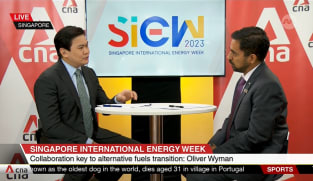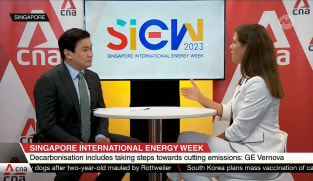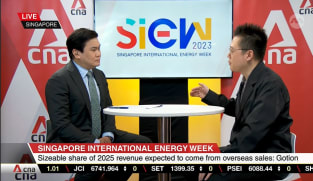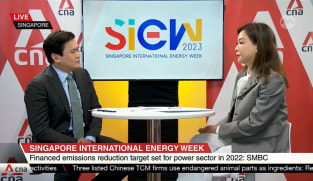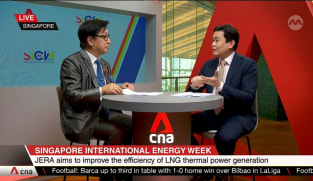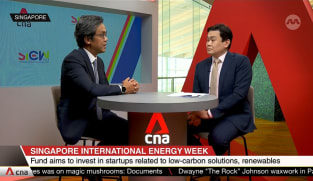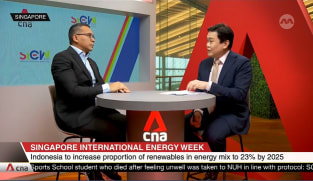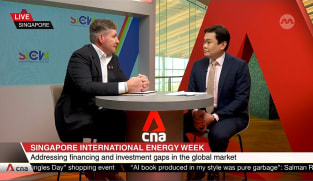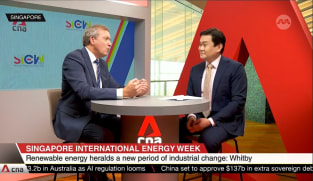Sun Xueling on Societies (Amendment) Bill
The Government is moving to strengthen and modernise the regulatory framework governing societies. Minister of State for Home Affairs Sun Xueling highlighted the proposed changes in Parliament on Wednesday (Oct 4) during the second reading of the Societies (Amendment) Bill. She said they aim to ensure that the law remains relevant in safeguarding national interests and security while providing better clarity to the public on the registration requirements. Firstly, the registration process will be strengthened. Currently, applications to register societies can be processed via two routes - normal and automatic. The normal route is for those that fall in the category specified in the schedule of the Societies Act, involved in issues which are more sensitive such as politics, religion, race, language and nationality. Such applications are vetted and assessed by the Registrar of Societies, which may involve several rounds of clarifications with the applicant. The Registrar has the authority to reject applications. The automatic route is for societies involved in issues which are less sensitive. In the last five years, there were about 1,400 applications; about half were submitted via the automatic route. Ms Sun said this differentiated approach in processing applications has allowed the Ministry of Home Affairs (MHA) to focus on assessing the more sensitive applications. But there are two gaps. Firstly, there were instances when the registrar needed information to ascertain whether applications under the automatic route did not fall within the sensitive categories. However, the current law does not allow the registrar to seek such clarifications. Secondly, even if an application does not fall within the sensitive categories, it could still be of concern. However, the Registrar has no authority to reject such applications. The Bill will remove the obligation on the registrar to register a society under the automatic rule without making an inquiry. This will allow the Registrar to make inquiries of applications submitted via the automatic route and reject an application if there is reason to believe that the society, if registered, is likely to be used for unlawful purposes. The Registrar would be able to make inquiries on all applications submitted under both routes. Ms Sun said MHA expects the majority of applications to still go through the automatic route without the need for any clarifications. Another set of amendments seeks to make it clear that the registrar has the powers to require the rules of specified societies to be amended as a condition for registration. The Registrar can refuse to register the society if it does not comply. The Bill also proposes to increase the fine quantum for all the offences in the Societies Act to “keep up with inflation” and to ensure that the fine quantum continues to have a deterrent effect.
The Government is moving to strengthen and modernise the regulatory framework governing societies. Minister of State for Home Affairs Sun Xueling highlighted the proposed changes in Parliament on Wednesday (Oct 4) during the second reading of the Societies (Amendment) Bill. She said they aim to ensure that the law remains relevant in safeguarding national interests and security while providing better clarity to the public on the registration requirements. Firstly, the registration process will be strengthened. Currently, applications to register societies can be processed via two routes - normal and automatic. The normal route is for those that fall in the category specified in the schedule of the Societies Act, involved in issues which are more sensitive such as politics, religion, race, language and nationality. Such applications are vetted and assessed by the Registrar of Societies, which may involve several rounds of clarifications with the applicant. The Registrar has the authority to reject applications. The automatic route is for societies involved in issues which are less sensitive. In the last five years, there were about 1,400 applications; about half were submitted via the automatic route. Ms Sun said this differentiated approach in processing applications has allowed the Ministry of Home Affairs (MHA) to focus on assessing the more sensitive applications. But there are two gaps. Firstly, there were instances when the registrar needed information to ascertain whether applications under the automatic route did not fall within the sensitive categories. However, the current law does not allow the registrar to seek such clarifications. Secondly, even if an application does not fall within the sensitive categories, it could still be of concern. However, the Registrar has no authority to reject such applications. The Bill will remove the obligation on the registrar to register a society under the automatic rule without making an inquiry. This will allow the Registrar to make inquiries of applications submitted via the automatic route and reject an application if there is reason to believe that the society, if registered, is likely to be used for unlawful purposes. The Registrar would be able to make inquiries on all applications submitted under both routes. Ms Sun said MHA expects the majority of applications to still go through the automatic route without the need for any clarifications. Another set of amendments seeks to make it clear that the registrar has the powers to require the rules of specified societies to be amended as a condition for registration. The Registrar can refuse to register the society if it does not comply. The Bill also proposes to increase the fine quantum for all the offences in the Societies Act to “keep up with inflation” and to ensure that the fine quantum continues to have a deterrent effect.




